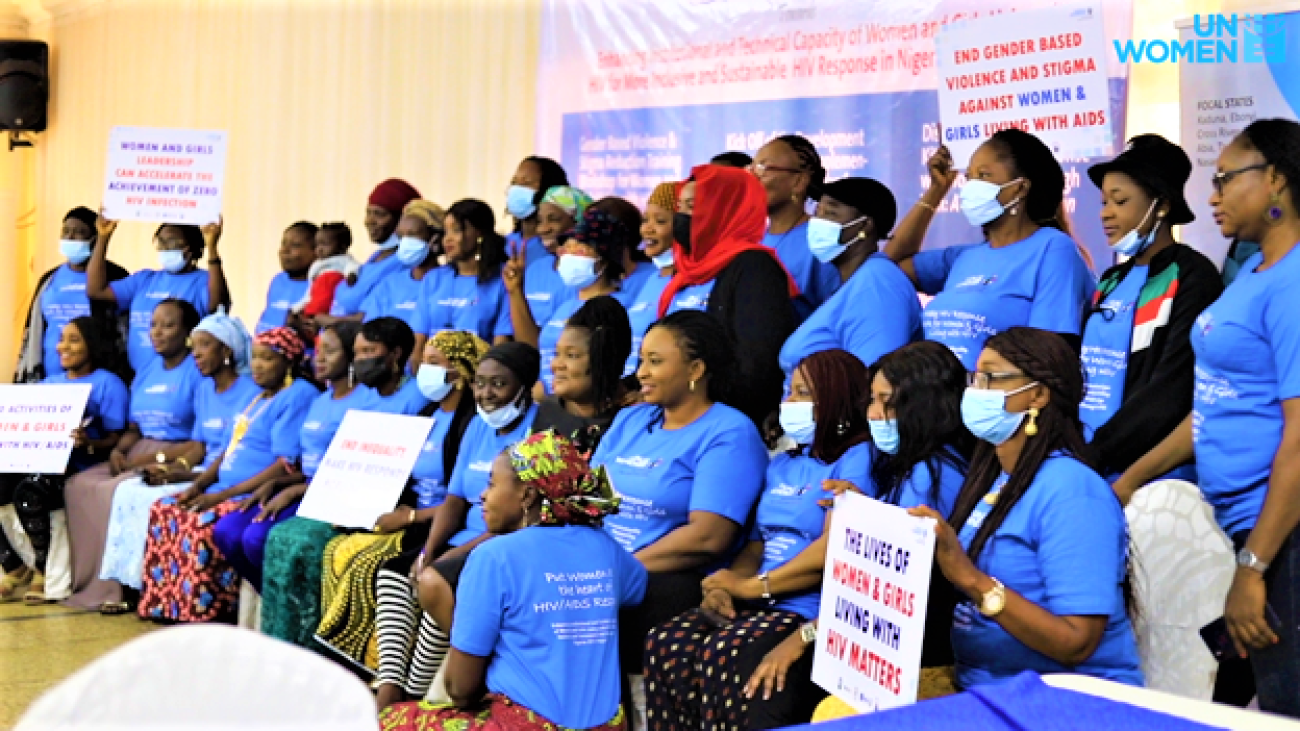Empowering Women Living With HIV/AIDS In Nigeria

"In Nigeria, gender inequalities and low socio-economic status of women and girls continues to fuel women's susceptibility to HIV infection"
“In the past, my rights were violated, I was stigmatized, I was violated physically and emotionally, and I didn’t know where to channel it. However, with this training, I am well informed and empowered. Hence, whosoever violates my rights, whether husband, public, community, whether in the workplace, I now know how to channel it and get justice”, said Stella Obianuju, a woman living with HIV/AIDS in Nigeria, who participated in one of the trainings for leaders of the Association of Women Living with HIV/AIDS in Nigeria (ASWHAN) towards the reduction of gender-based violence and stigmatization.
The Association of Women Living with HIV and AIDS in Nigeria (ASWHAN) is an umbrella body of support groups of Women Living with HIV and AIDS in Nigeria with over 850 support groups registered under it across the country. It advocates for the recognition of positive women’s right in Nigeria and seek to put in place comprehensive HIV and AIDS prevention, care, and support services.
In Nigeria, gender inequalities and low socio-economic status of women and girls continues to fuel women's susceptibility to HIV infection, gender-based violence, stigma and discrimination and other forms of abuse. Women living with HIV/AIDS face multiple forms of discrimination, stigma, and discrimination because of their HIV/AIDS status. In recognition of these differential needs, National Agency for the Control of AIDS (NACA) with support from partners have taken critical steps in mainstreaming gender in the HIV/AIDS responses. Despite the efforts, the leadership of the Association of Women Living with HIV&AIDS in Nigeria (ASWHAN) faces challenges in achieving their goals.
It is in this context, UN Women through the Enhancing Institutional and Technical Capacity of Women and Girls Living with HIV for more inclusive and Sustainable HIV Response in Nigeria Project (EITC) and in collaboration with UNAIDS, NACA, UNESCO and other partners undertook targeted interventions. These interventions include conducting a gender assessment to generate relevant gender data to support the national HIV/AIDS response. Secondly, supporting ASWHAN to produce a strategic framework and funding plans to strengthen its operational base and capacity to undertake interventions to eliminate gender-based violence, stigma, and discrimination. Thirdly, conducting capacity building and advocacy workshops on Gender Based Violence, Stigma, and discrimination for selected ASWHAN national executives and state coordinators.
Also as part of the interventions was the development of a Toolkit for Action developed by UN Women and film producers of the film: Making the HIV Response Work for Women. The toolkit is aimed at enhancing understanding of HIV/AIDS gender issues and drive advocacy and actions for women living with HIV/AIDS. It is intended to be used by national governments, civil society, various UN and development partners in their advocacy work on gender equality and HIV.
The UN Women in collaboration with UNAIDS, UNESCO, NACA and other partners organised capacity building and advocacy workshops on gender-based violence, stigma and discrimination for the national and state executives/coordinators of ASWHAN with selected representatives from the federal and state ministries of women affairs; NACA, SACAs, NEPWHAN; and other networks and stakeholders.
Objectives of the training was to deepen the knowledge and understanding of Women Living with HIV on sexual and gender-based violence prevention and stigma reduction; strengthen the advocacy and leadership skills of the organisation’s executives; inaugurate SGBV focal persons among the trained participants for follow-up and coordination of GBV response in the network; develop actionable work-plan for ASWHAN’s GBV interventions across Nigeria.
The 3-day workshop was held in Abuja and Lagos. The workshop took into consideration the specific goal of ensuring that participants understood the root causes and drivers of GBV and stigma as well as help identify concrete prevention and mitigation strategies to address observed cases. The training was participatory and hands, with several plenary sessions, brainstorming activities, role plays, group discussions, and experience sharing.



